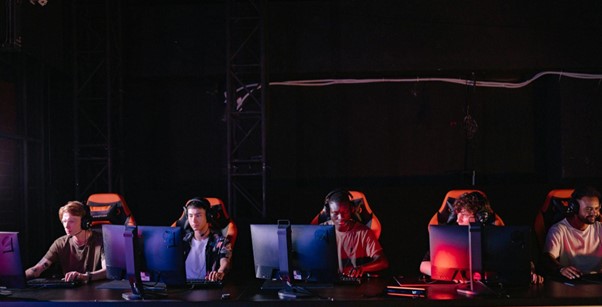
Technological advancement and strategic market expansion are highly pushing the growth of integrated gaming, where sports betting merges with casino gaming.
Modern technologies allow these integrations of different kinds of betting and gaming services, allowing the operator to provide the full gaming experience to everyone, from sports bettors to classical casino players. It allows operators to upscale and shift to other markets and demographic segments with improved user activity in their platform, hence increasing revenues.
Strategic alliances and partnerships have been of the utmost importance in market reach. They give gaming companies the opportunity to work with some of the best-known sporting and entertainment brands, enhancing their profile within the markets and enabling them to deliver improved user experiences through new and innovative betting products and casino games.
Personalization in User Experience
In integrated gaming, personalization is key to enhancing user engagement. Advanced technologies, including artificial intelligence (AI), play a crucial role in this aspect by enabling the customization of gaming experiences. AI algorithms analyze player behavior and preferences to tailor game offerings and betting options to individual users. The personalization ensures that games remain challenging and enjoyable, thus fostering greater customer loyalty and enhancing overall satisfaction.
Moreover, responsible gaming features integrated into platforms help promote a safer gaming environment. These tools aid players in managing their gaming activities, which is essential for maintaining a sustainable gaming environment.
By embedding features such as session limits, spending caps, and self-exclusion, operators comply with regulatory requirements and promote a responsible gaming culture.
In addition, live streaming technology has improved sports betting. It allows a bettor to follow a sports event concurrently in real time and place bets with the same ability. Dual access makes the games more thrilling and allows the bettors to make more reasoned judgments since they can respond in real time to events in the live games.
The use of new-age technologies, such as extended reality (XR), in sports betting is expected to gain popularity with improved camera systems and fast 5G connectivity. The new technologies and camera systems supported by 5G will lead to live betting supported by 360-degree viewing. Viewers may even see 3D holograms popping up during a game, especially in major sports tournaments like the World Cup.
Regulatory Landscape and Market Growth
Key to this is an important change that is occurring at the global level in the regulatory environment of online gambling and sports betting, concomitant with the modification at the level of integration currently achieved between the latter two. Most geographical areas around the world appear dynamically to reconfigure their regulatory frameworks in the name of effective service delivery towards consumer protection and reaping full benefits from the economic stream of the gambling market.
Europe remains at the forefront of the online gambling business, given very tight and sophisticated regulatory environments that prioritize issues concerning player safety, responsibility, and fair gaming. European authorities remain proactive in setting their regulations to address issues like data protection, advertising standards, and cross-border cooperation within the gambling sector.
In the North American region, especially the United States and Canada, there is a strong tendency to change the laws related to the liberalization of online sports betting and casinos. The best online casinos in the USA have adjusted to the changing laws and made the most of them by adopting technology. This is largely influenced by potential economic gain, which includes job creation and tax revenues, and thus, many states and provinces have legalized or are considering legalizing online gambling.
Therefore, the Asia-Pacific is emerging rather swiftly as one of the important markets for online gambling, supported by Internet penetration and mobile usage. Countries powered by regulatory changes that were conducive to mobile gaming and sports betting include Japan, India, and the Philippines.
Conclusion
The ongoing integration of sports betting and casino gaming transforms the gambling industry into a more diverse, technologically advanced, and user-friendly environment. The future of integrated gaming looks promising with continuous technological advancements, evolving regulatory frameworks, and an increasing focus on consumer engagement through digital platforms.